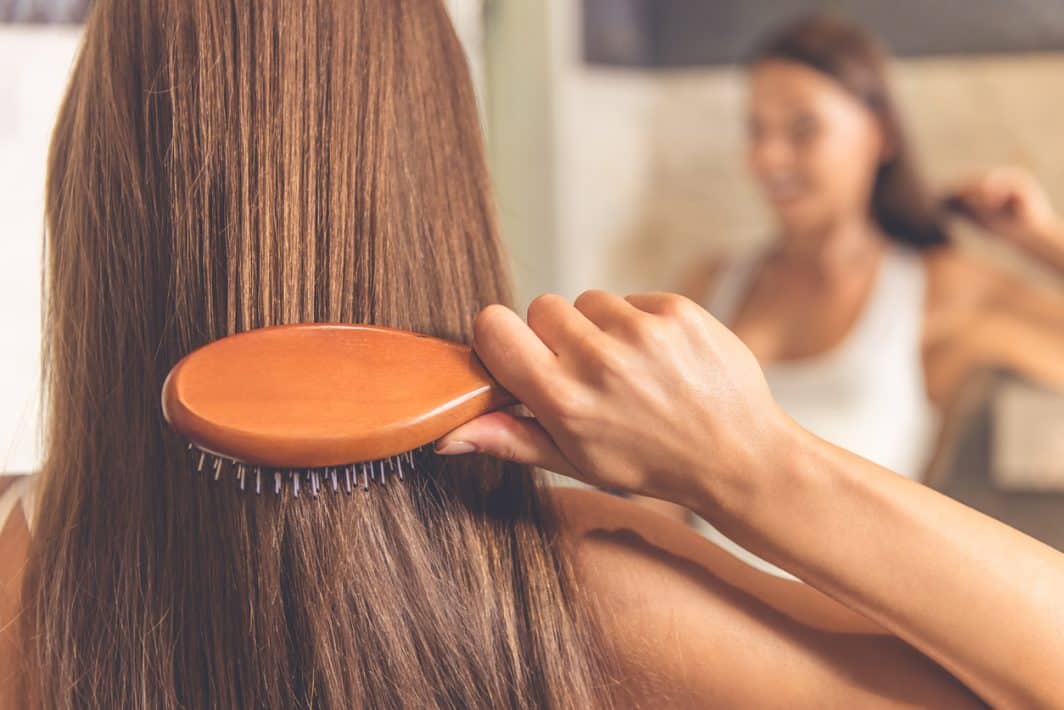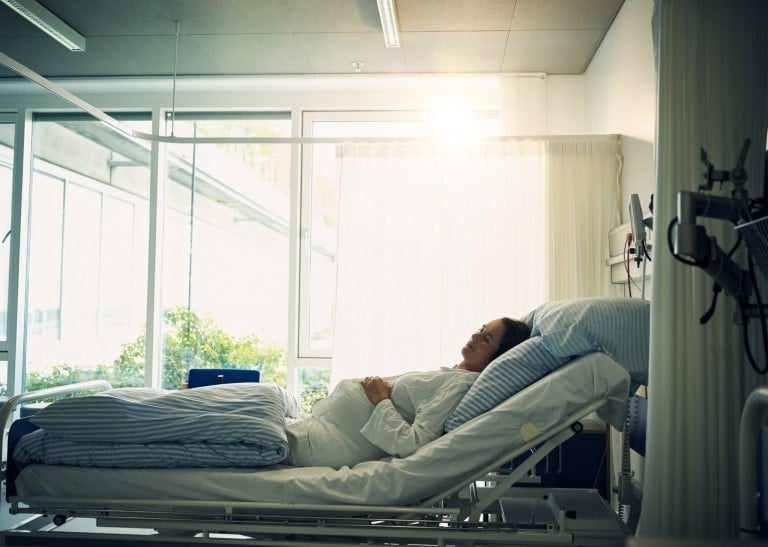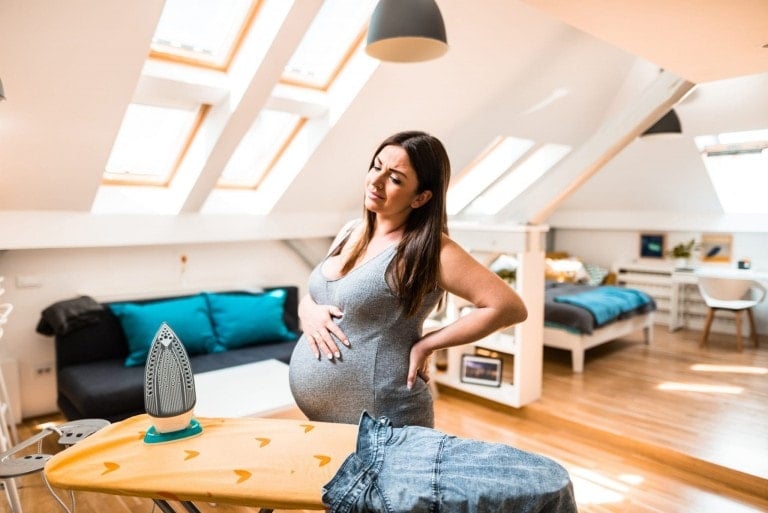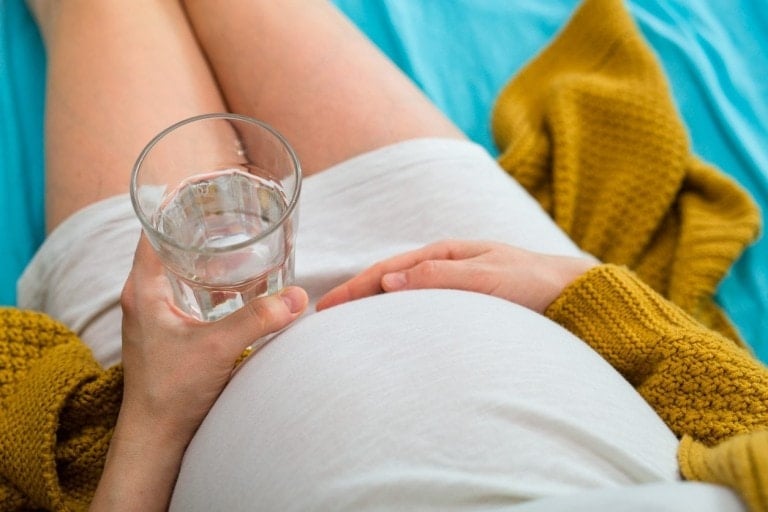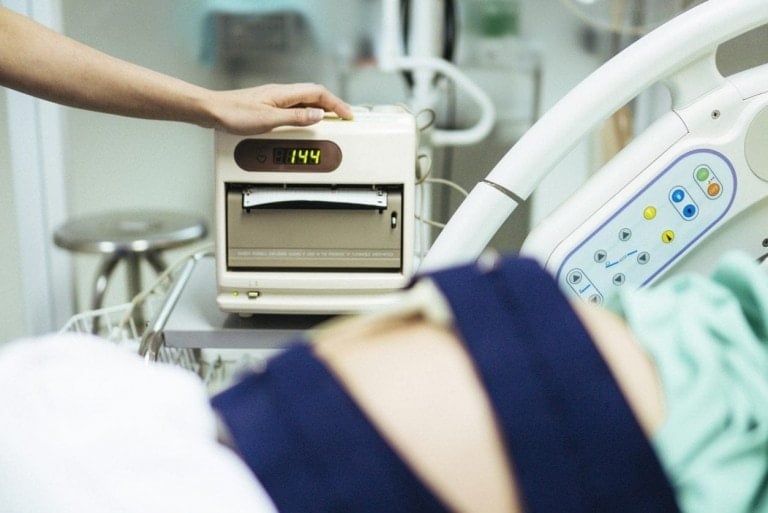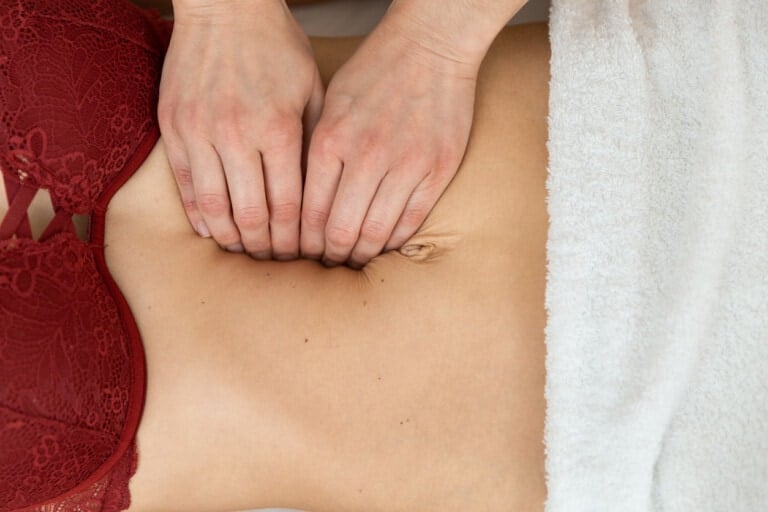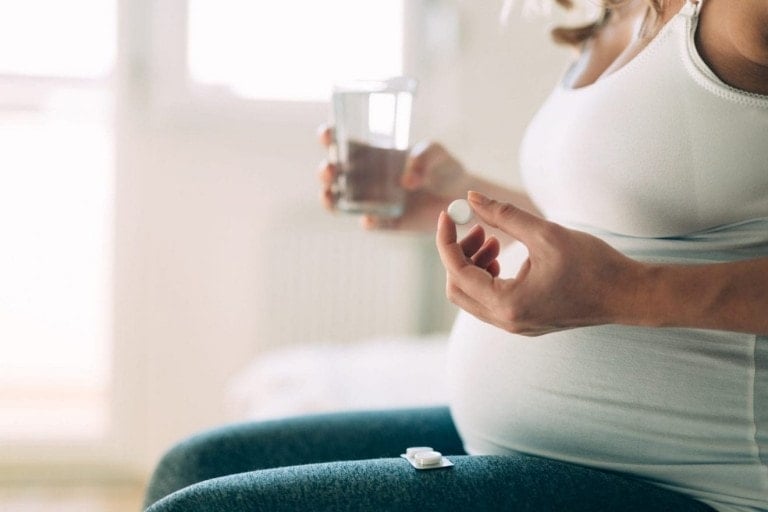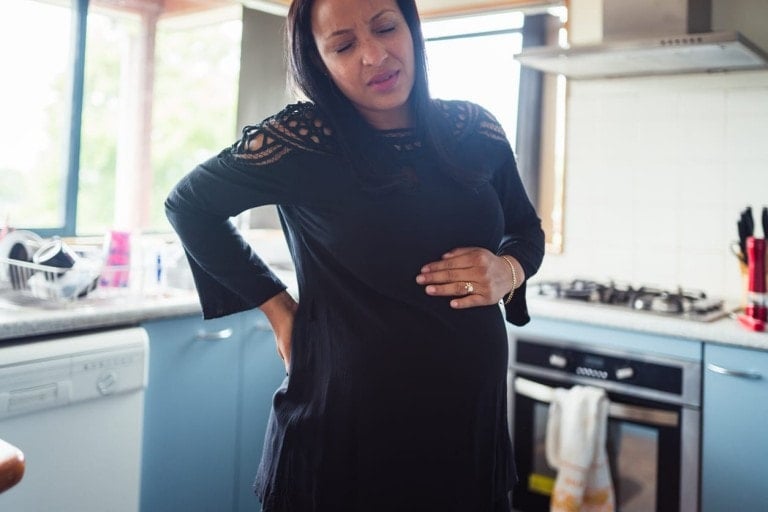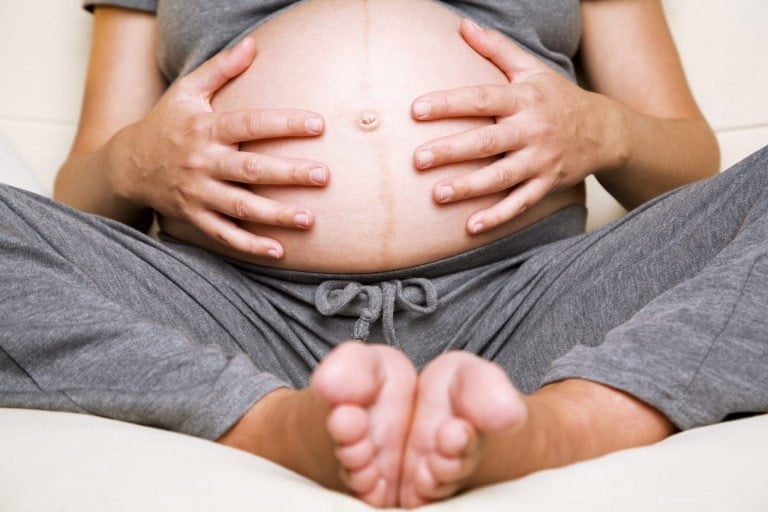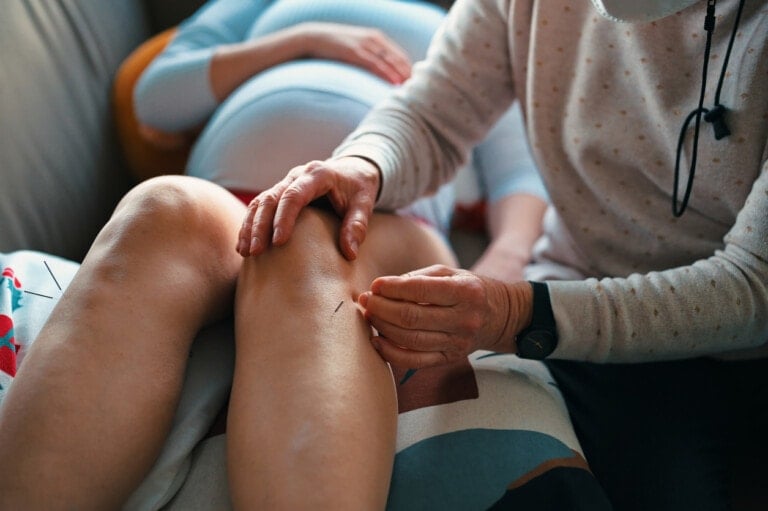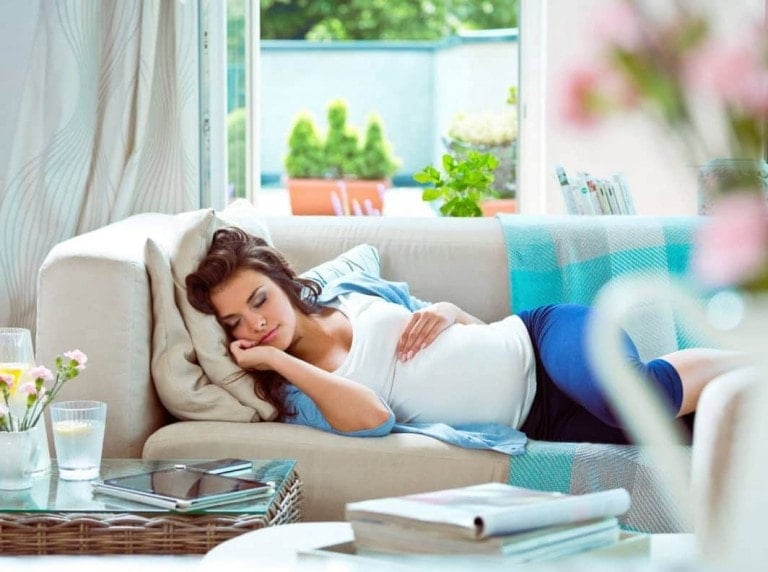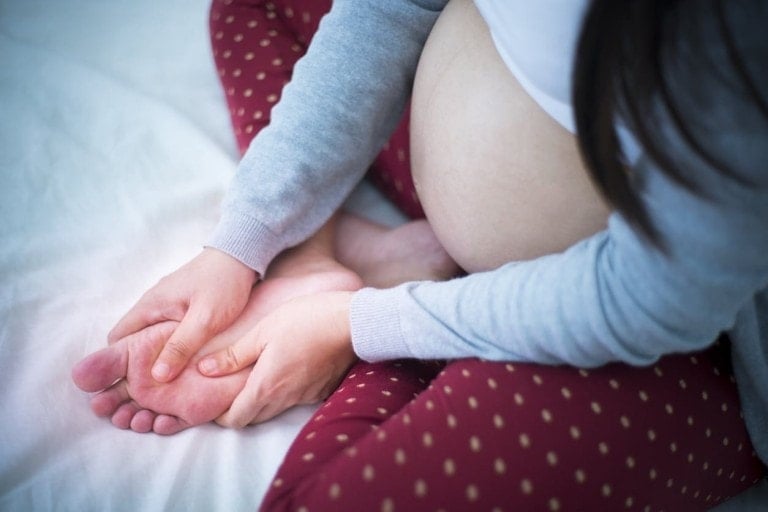From alcohol to hot tubs, pregnant mothers sacrifice a lot for the health of their babies growing inside them. If you are someone who consistently colors her hair, this might be a tough habit to give up. I have been getting highlights in my hair since high school. Although I like to think of myself as a natural blonde, even without this enhancement, I would have had difficulty not coloring my hair while pregnant.
There is little research on hair dye during pregnancy because it can be difficult to get ethical approval to conduct these studies.1 However, we will examine what is known about using hair dye while pregnant — what is in it, different types, potential effects, whether it is safe, and how to make it safer.
Can You Dye Your Hair While Pregnant?
Dying your hair during pregnancy is a personal choice. There is a theoretical risk that exposing yourself and your baby to the chemicals in hair dye may cause issues with your pregnancy or baby. However, most of these ingredients have not been studied in humans or specifically pregnant women. Remember that studies that have been performed looking at these chemicals usually involve feeding them to animals. But you are not eating hair dye!
Your skin is a significant barrier to the chemicals in hair dye during pregnancy. Unless your scalp has an open wound, only a small amount of hair dye is absorbed into your body. The chemicals likely do not reach the placenta in large enough quantities to do any harm to your baby.2,3
Can You Bleach Your Hair While Pregnant?
Hair bleach typically uses hydrogen peroxide to highlight and lighten strands of hair. Hydrogen peroxide naturally occurs in very low levels in the air and human tissue and is generally considered harmless at these low levels.4 This bleach is generally recognized as safer than hair dye because it is not usually applied to the whole head and scalp. Therefore, it is unlikely to reach the placenta or cause damage to an unborn baby.5
Potential Risks of Dying Your Hair During Pregnancy
Some studies have drawn associations between dying your hair during pregnancy and certain adverse conditions in offspring. Hair dye use during pregnancy may be related to leukemia in children under 2, allergies, abnormal birth weight, and brain tumors.6,7,8 However, major cancer research centers report insufficient evidence from these studies to link hair dye to cancer conclusively.8 Another study reported that it is unclear whether hair dye affects fetal development.9
What Is In Hair Dye?
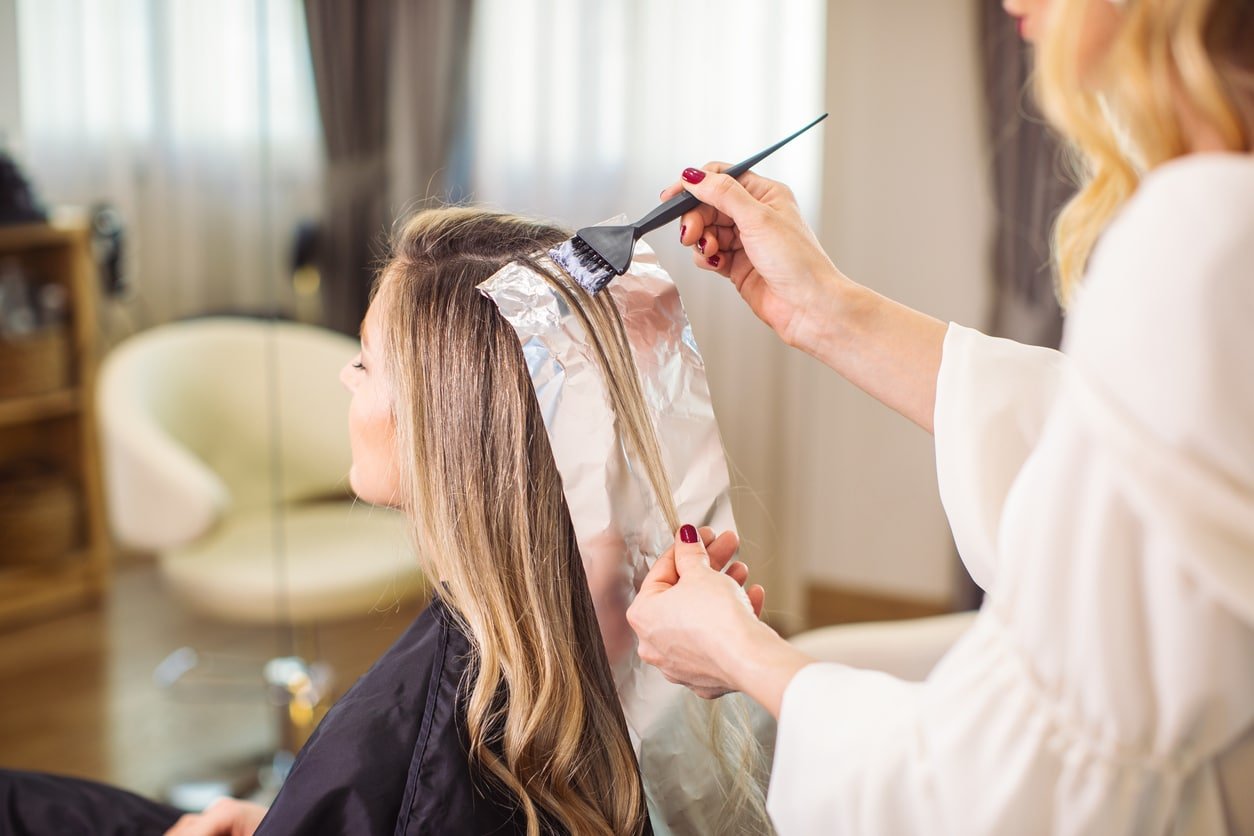
Some common ingredients in hair dye include phenylenediamine, aminophenols, and ethanolamine.2,3 Phenylenediamine, sometimes called PPDA, has not been studied in human pregnancies. In one study in pregnant rats, no malformations were detected in the fetuses exposed to phenylenediamine via their mothers. Furthermore, the occurrence of cancers in rats exposed to this substance was not statistically significant.16 This ingredient is often found in boxes of dyes and salon products, both temporary and permanent dyes. It can cause irritation and allergic reactions, so it may be worth reading the ingredients in your hair dye and finding an alternative to PPDA.10
Other hair dye chemicals, such as aminophenols and ethanolamine, have demonstrated a risk of birth defects in animal studies when ingested at very high doses.2,3 Hair dye also includes many other less concerning ingredients, including:3
- Propylene glycol, which can be found in prescription drugs, cosmetics, and even food11
- Oleic acid, which is naturally occurring in animal and vegetable sources12
- Isopropyl alcohol, which is often applied daily to our skin since it is the main ingredient in most hand sanitizers13
When considering the risk of hair color in pregnancy and the safety of each ingredient, more studies need to be performed on the safety of these chemicals when combined.8
Different Types of Hair Dye You Can Use During Pregnancy
The types of hair dye are gradual, vegetable, temporary, semi-permanent, and permanent.3 The most common types of hair dye are semi-permanent, permanent, and vegetable.14
Permanent hair dye requires ammonia to open the outer layer of the hair and allow the dye to infiltrate deep into the shaft. While these hair dyes last without fading, they usually contain harsher chemicals that may be more irritating to the scalp and drying to the hair itself.14
Semi-permanent hair color coats the hair in dye instead of changing the color of the inside of the hair strands. Hence, they do not contain ethanolamine or ammonia, chemicals required to penetrate the hair shaft. They do still contain other potentially irritating chemicals, though. Also, while these dyes contain fewer harsh chemicals, they rinse away a bit with every hair wash, so you may need to reapply and expose yourself to them more frequently.14
Vegetable dyes are usually made from henna, a powder made from a red leaf. While these products are considered more natural and possibly safer and healthier, they still often contain PPDA to make the application last longer.14
It is easy to become overwhelmed with comparing and investigating every type of hair dye and ingredient to determine whether they are safe during pregnancy. If you are searching for the perfect pregnancy-safe hair dye, rest easy. Pregnancy organizations such as the American Pregnancy Association and the American College of Obstetricians and Gynecologists have done this research for you and claim that, in general, hair dyes do not cause serious birth defects. Any hair dye can likely be safely used during pregnancy. Animal studies have demonstrated the safety of these products, and such a small amount of hair dye is absorbed into the body.5,15
4 Tips for Safely Coloring Your Hair While Pregnant
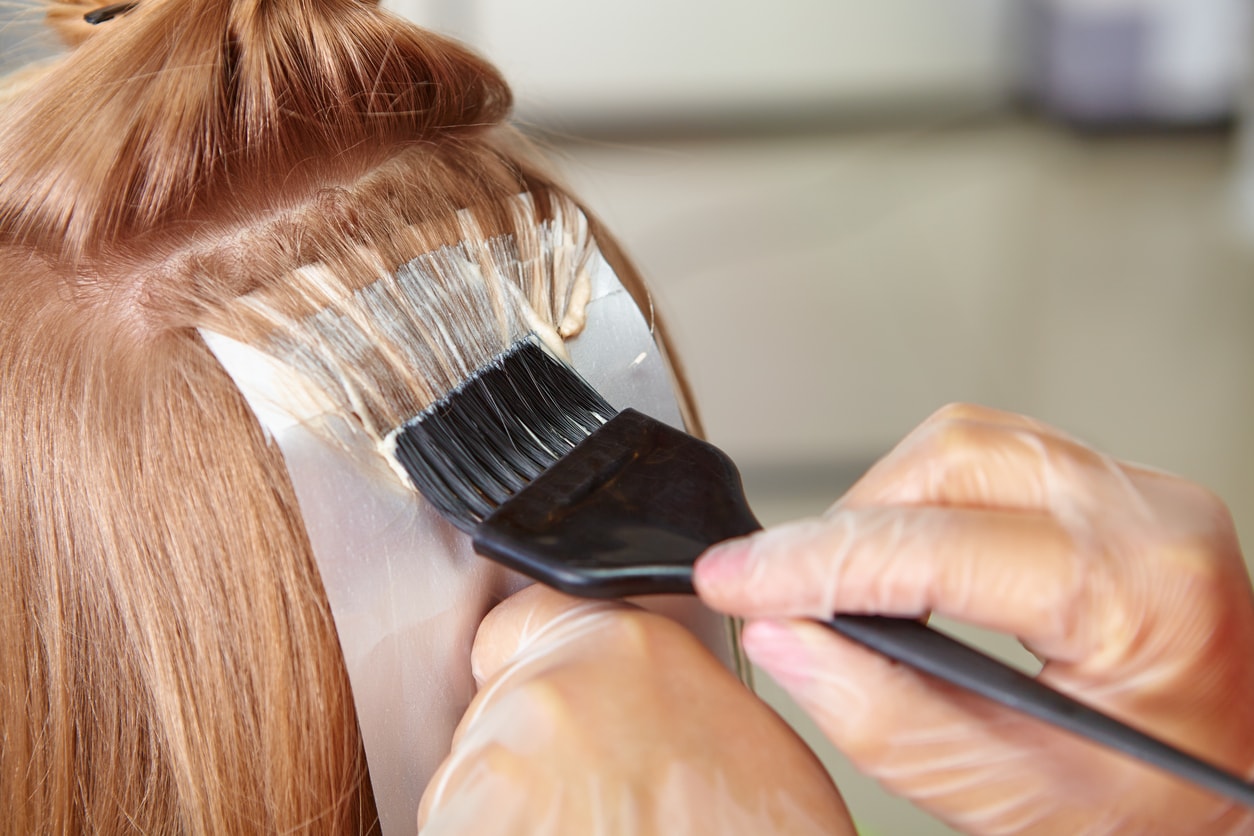
If you have decided that you are comfortable with continuing to color your hair during pregnancy, there are still precautions you can take to reduce the risks to you and your growing baby:
1. Wait Until the Second Trimester
Most of your baby’s vital organs form in the first trimester, so harmful chemicals are risky. If you want to be extra cautious, you can wait until the first trimester is over to dye your hair and protect your baby at their most vulnerable and formative time.1
2. Minimize Contact With Your Skin and Scalp
The chemicals in hair dye can only potentially harm your baby if absorbed into the body. Wear gloves when applying hair dye at home so it does not get absorbed through your fingers and hands. Consider leaving some of your roots your natural color to decrease the contact the dye has with your scalp.1,5
3. Minimize Inhalation of Hair Dye Fumes
Just as you want to minimize chemical exposure to your skin, you also want to minimize breathing in the fumes. Apply hair dye in a well-ventilated area or consider opening a window. You can also wear an N-95 mask to decrease the chemicals you breathe in while dying your hair during pregnancy.1,5
4. Perform a Patch Test
This tip is as much to protect yourself as it is for your baby. You want to ensure no ingredients in your chosen hair dye will cause an allergic reaction. To perform a patch test, apply the dye to a small area of your skin, such as behind your ear or on your elbow. Monitor for irritation before applying the dye to your whole head.5
Every pregnant mother wants the best for her baby, and no one wants to put their pregnancy at risk. However, you may not want to change your identity or appearance just because you are growing another human. In moderation and with the proper precautions, most experts agree that dying your hair is safe during pregnancy. Do your research and talk to your provider to come to a decision you feel comfortable with, but try not to agonize or “split hairs” over the decision!













